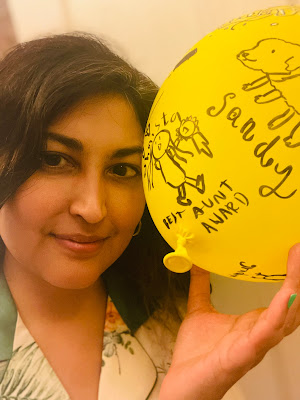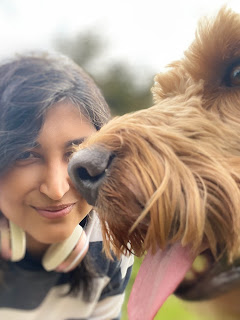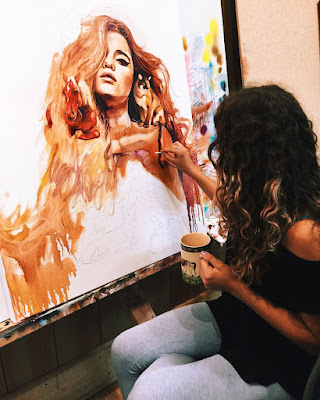I took myself for a walk today. My body aches, lately. Ha! Lately? For the past thirty years kind of lately... but yes, this sludge like treacle we move through while attached to our phones receiving news of a genocide adds a new layer of ache. When the doctors found a murmur on my ten year old heart, they kept an eye on it even as I moved countries. Lately... oh that word again... my heart is heavier, the beats a little unsteadier. "I think I'd like to send you to Papworth if you don't mind," said my cardiologist a few weeks ago. For an MRI at the big fancy heart hospital. "Anything I should know? Any questions for me?" she asked. She's lovely, and Northern Irish, so I think she would have been fine with me responding with the truth. "The children," I would have said. "The children of Gaza." I don't know what the figures are for bombed, amputated, under the rubble, but as we know, they are not numbers. Each one has a name. Although the ones who knew their names, who could write their names on the tiny white shrouds, are also gone. Motaz Azaiza, our traumatised young heroic journalist, puts it this way: "They passed," he says. I find his way of commenting on unjust death very moving. Sparse and factual, laden with helplessness, and yet, dignified. Even as he witnesses a physical reality beyond the language any one of us possesses. In war time, photographers from foreign western lands, are often given the wealthiest noblest prizes for capturing children on fire or dying. Motaz is Palestinian, and the people he photographs are family, friends, neighbours. The blood of his blood. No award or prize will ever ease his psychological torment.
On Valentine's Day, I took myself for a walk, because my body was aching, and I know there are snowdrops ‘out there’ and aconites and the beginnings of daffodils. There are bridges with river water, and even birdsong. There was unexpectedly more. I walked past the village hall and was invited in for the monthly Wednesday tea and cake. My first thought is often no, instinctive to avoid gatherings. Not just a pandemic protection, but a social defence. Years of "so what are you up to these days?" Now I find I can talk more easily having been accepted as The Daughter Who Lives With Beloved Parents. I have somehow moved into a more accepted phase. Not quite old, not too young. Just... a person. The Elders were glad to have me. I ate a slice of apple pie, and then washed up as many cups and saucers as I could before linking arms with a friend and walking on. "Rage helps keep my tears at bay," she said. It's nice having friends who know.




























































































